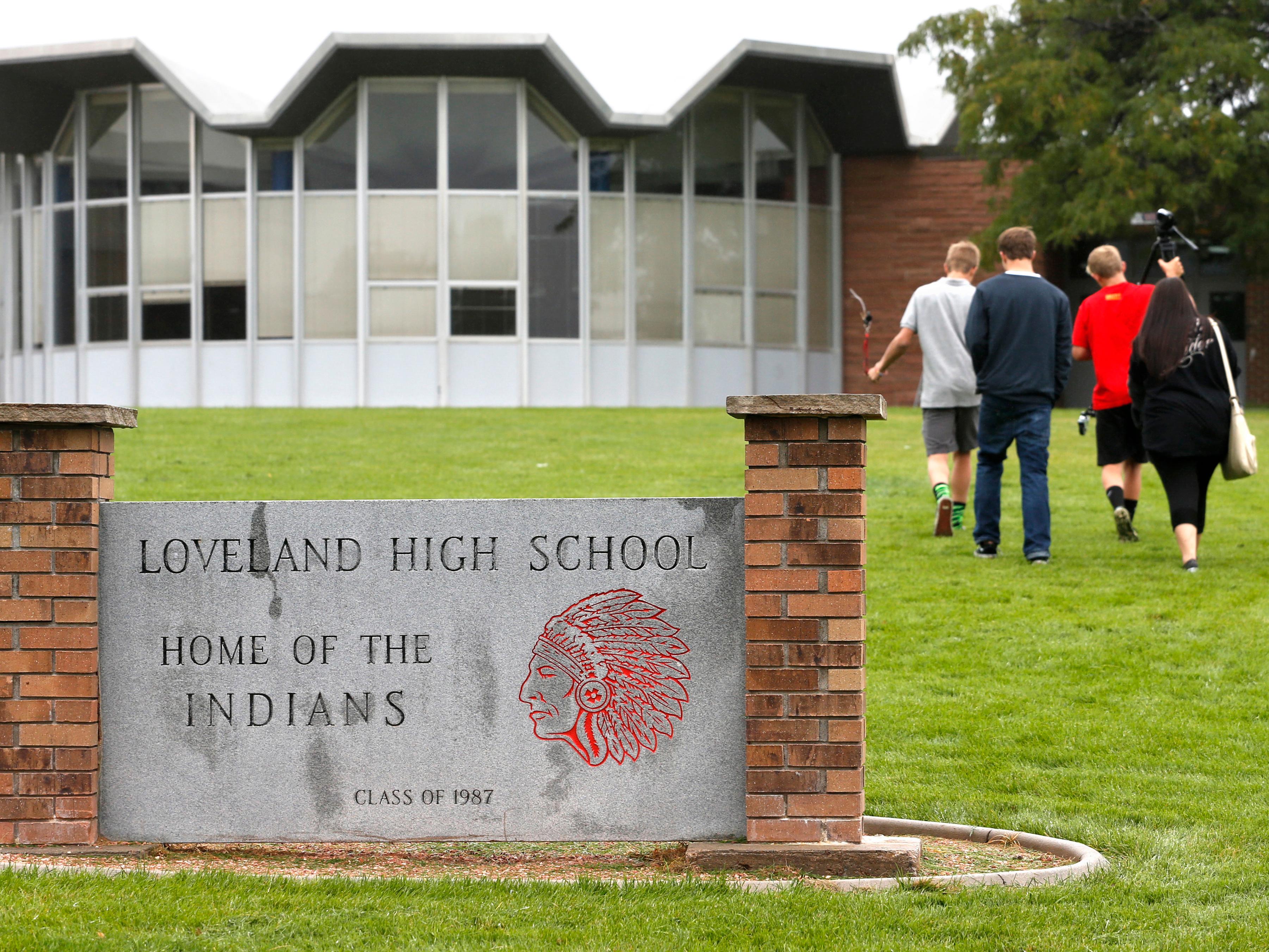
Board members of the Thompson School District in Loveland voted unanimously Wednesday night to retire racist mascots from two of its schools.
For decades, Bill Reed Middle School had the Warrior and Loveland High School had the Indian as their mascots. Several alumni left messages for the board to listen to ahead of its vote, retelling of their days as students and what it was like to have such mascots growing up.
Shari Robinson attended both schools when she was younger. She said she witnessed dozens of racist acts at her school and at rival campuses at the time and in recent years as well.
“Kids [from other schools] made a Twitter thread filled with signs that they’d made that said, ‘Loveland is going on the Trail of Tears,’ ” Robinson said.
She also recalled an incident when students painted a doll in brown face, dressed it in a Native headdress and a Loveland jersey and lynched it during a school rally.
Robinson said she supports the decision to replace the mascots.
“It’s really damaging, not just to our Native American students, but to every student, to dehumanize another culture,” the Loveland resident said. “To me, it really strikes as ethnocentrism and cultural appropriation and racism.”
Other people who called in to the district objected to removing the mascots. Another Loveland High alumna, Cynthia Dyekman Geiger, condemned the Thompson School District Board.
“The Loveland High School Indians have proudly served the test of time and as a testament of pride in Loveland High School that goes back now three and four generations,” Dyekman Geiger said.
She accused the board members of taking the “easy way out” by removing the mascots instead of consulting the community. However, the district had encouraged residents to share their thoughts before they cast their votes.
Dyekman Geiger also requested that the board table their vote, but they proceeded as planned and voted 7-to-0 to retire the two racist symbols.
The schools have until next August to phase out any logos or images that include the former mascots. The district has also launched a plan to find new ones that will support an “inclusive and supportive culture” on campus. The board says the final decisions will include input from students, staff and the community.
This change comes at a time when a national conversation is taking place around racism at various levels and institutions. Washington’s NFL team recently got rid of its racist name, which it had kept for decades despite protests from Native American communities and others.
Meanwhile in Colorado, it’s still an uphill battle for those who want to erase racist shrines. Some schools refuse to get rid of racist mascots, like Lamar High School’s “Savages,” or La Veta Junior-Senior High School’s “Redskins.”
And on a larger scale, some Colorado mountains whose names are racist or have racist ties might be renamed. Gov. Jared Polis created and filled an advisory board that will review proposed changes to places like Mt. Evans and another peak that shares its name with La Veta’s mascot. Those changes could take months or years to come to fruition.









